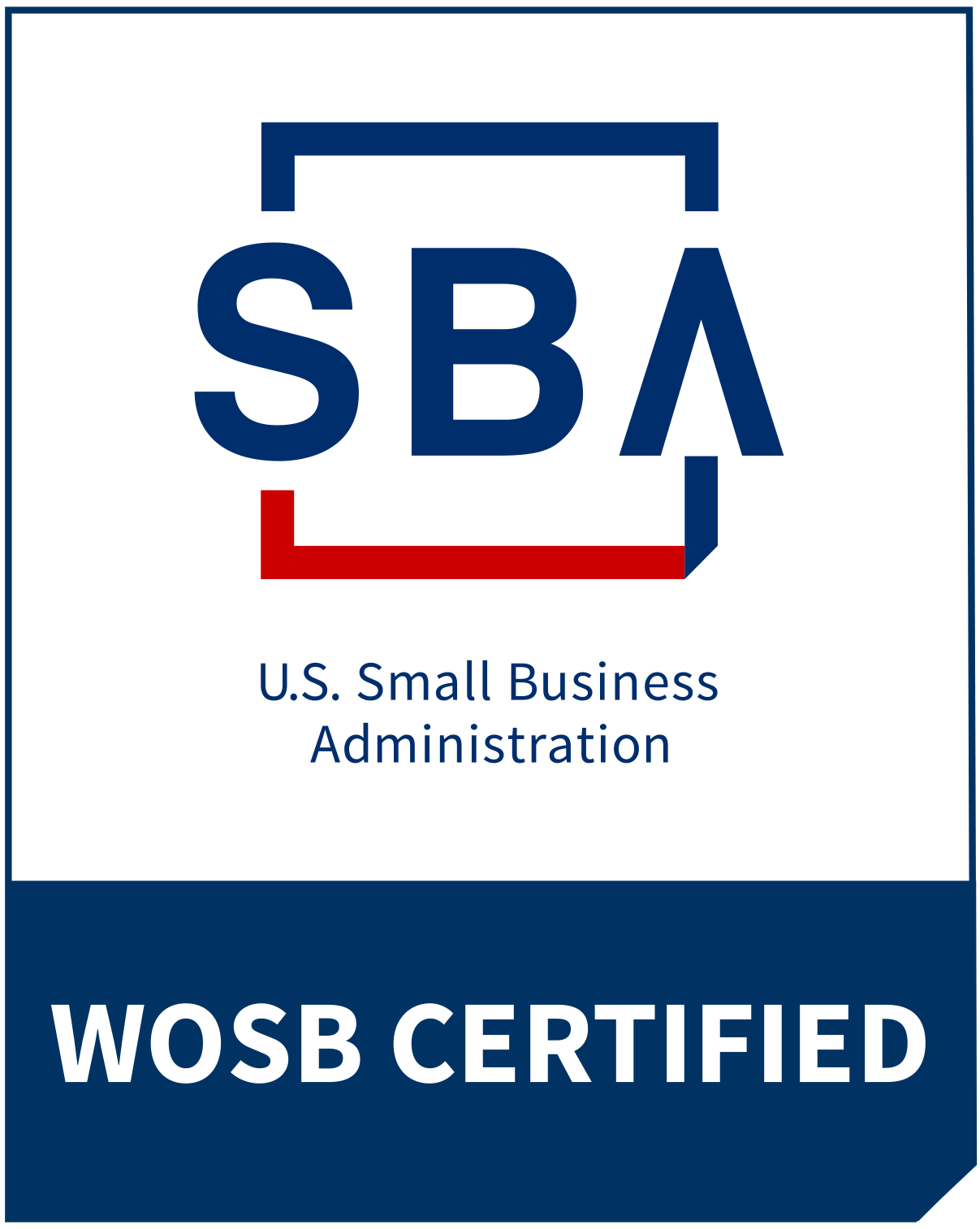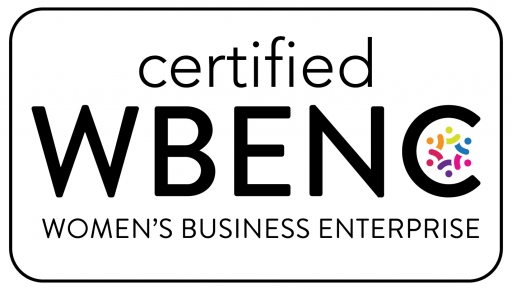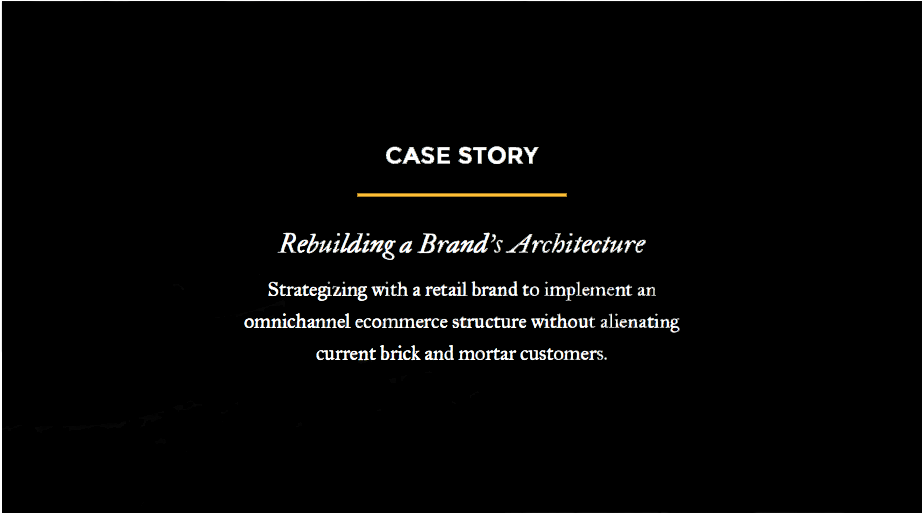
Rebuilding a Brand’s Architecture
Strategizing with a retail brand to implement an omnichannel ecommerce structure without alienating current brick and mortar customers.
The client team was working to proactively build an online omnichannel presence. Together, we hoped to develop short-term action steps and long-term strategy that did not alienate current customers.


Consumer Needs
Diving deep into social media ethnography and trend research, The Garage Group uncovered need areas within the brand’s focus area.


Using deep-dive social media ethnography and trend research, The Garage Group uncovered 15 omnichannel examples within the brand’s focus area to be used as stimulus for the session.
Day 1
Once in our session, the brand team was led on a field trip to select stores at a mall to uncover successful brand architectures that could be translated to their category.


Inspired by the field trip, the group discussed top 3 winning takeaways from brands that they had studied. They aligned on 5 implications that must exist in a great omnichannel experience.

Dividing into groups, the team used templates to flesh out different strategy directions within each of the implication spaces. Groups rotated, pitched and gave feedback to one another, allowing a round of iteration and development before each pitch.

Day 2
Working in small startup-like teams, the client received frequent input/feedback from executives across the business to solve for“what needs to be true” to turn strategy concepts into reality.
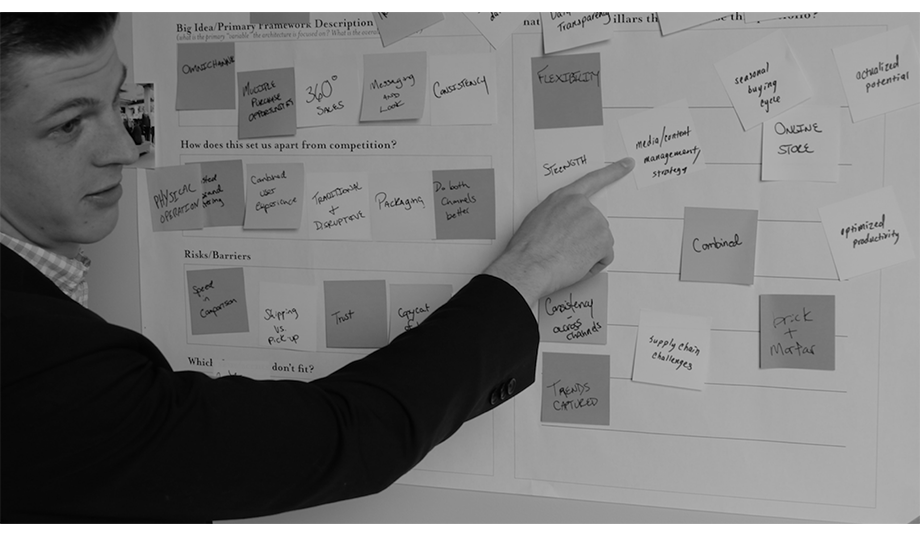
Consumer Input
Rounds of iteration were punctuated with consumer input (via iPad), practice “pitches” and coaching to ensure barriers were anticipated and solved for. The best ideas got brought to the surface and fine-tuned, building confidence in concepts that would get quickly pushed through the organization and out to market.

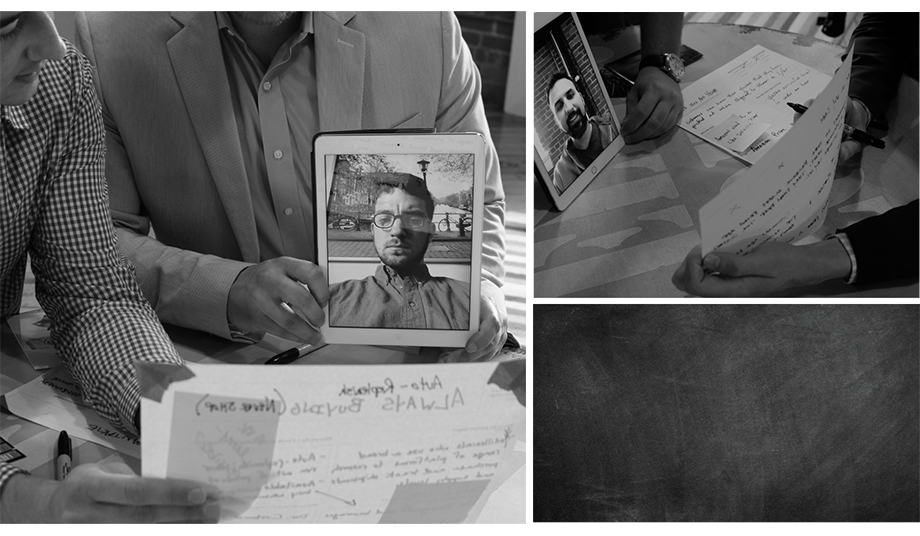

Teams pitched their strategic directions to one another and finally to executives that lead different parts of the overall business. This iterative pitching approach netted fully refined concepts.

Concepts were placed into a live prediction market. Using an online platform, consumers had an allotted time to assign tokens to their favorite concept direction. Groupthink played a part in this phase as consumers could see values other participants were attributing to ideas, simulating market viability.
“The Garage Group is a well-oiled machine. Kudos to the process!”
Team Member, F500 Retail Brand
Team Member, F500 Retail Brand
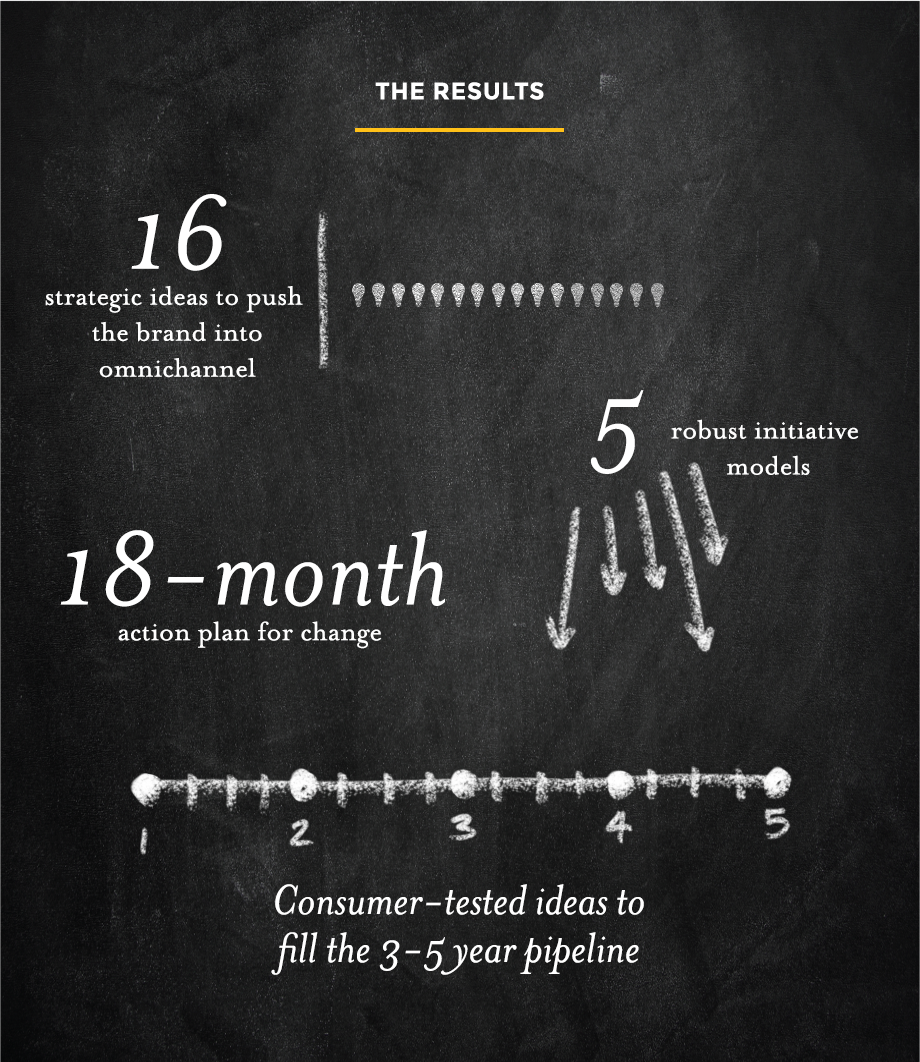
Want to transform your idea generation and development process? Let us help you with your innovation challenge!
